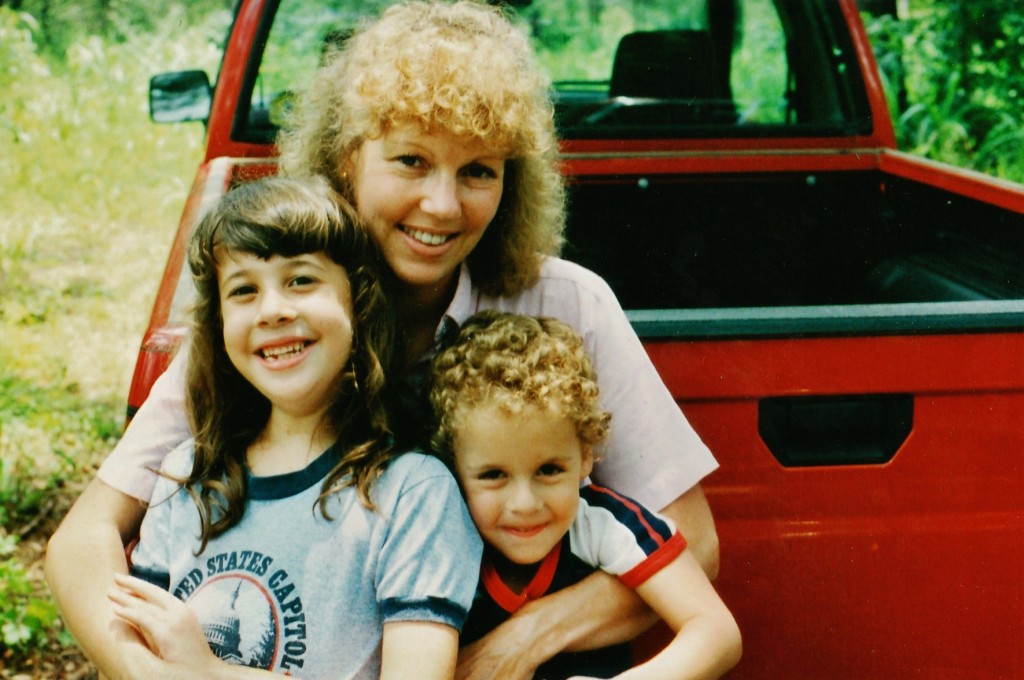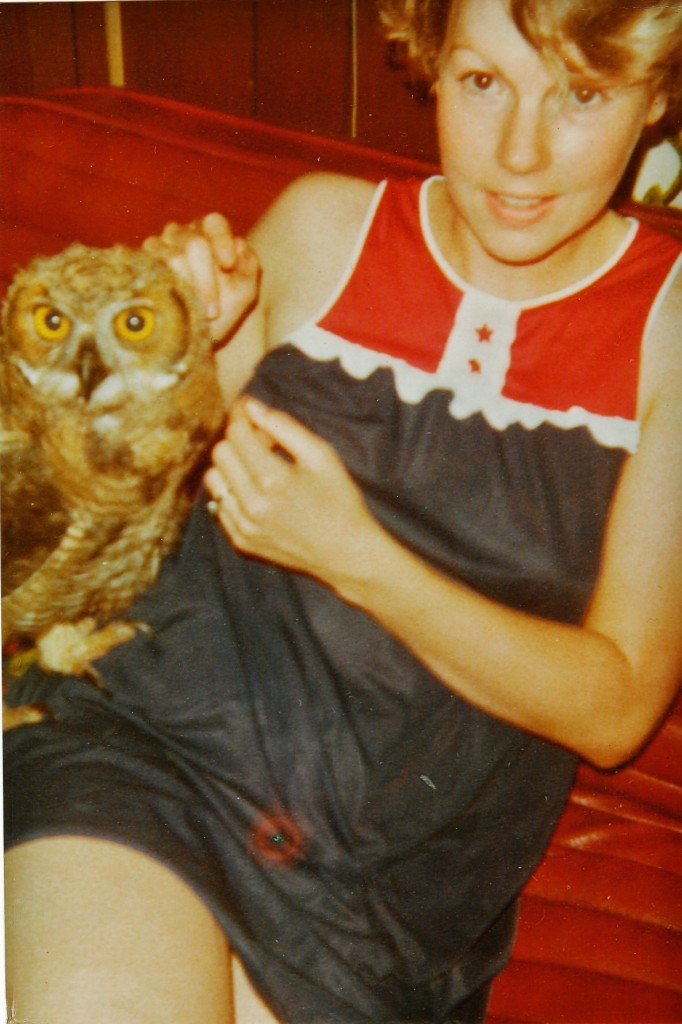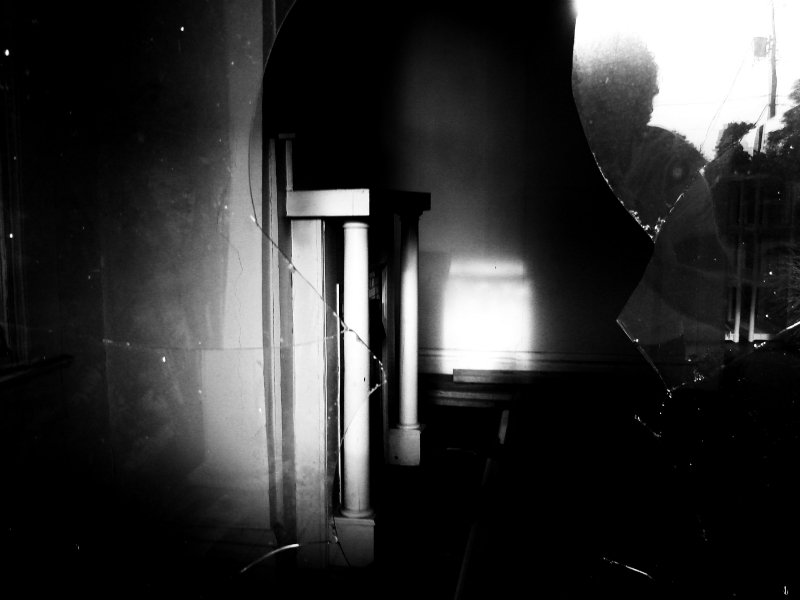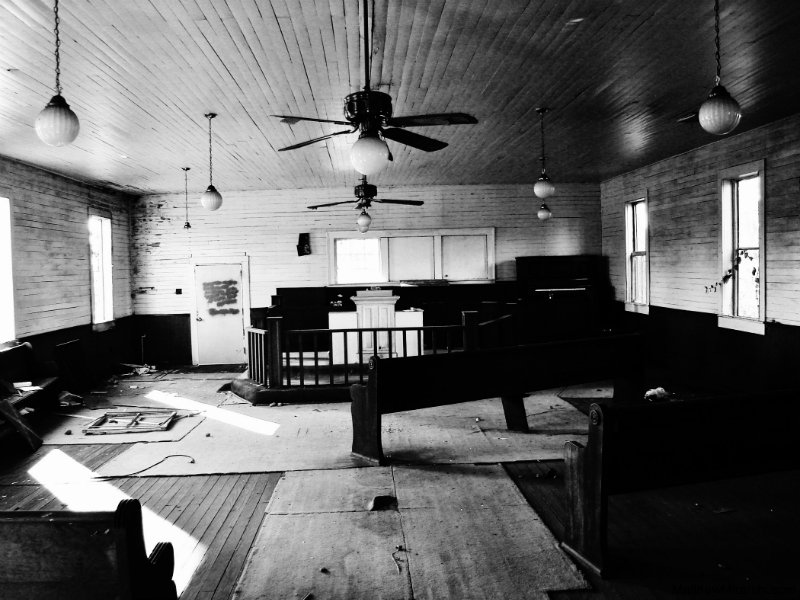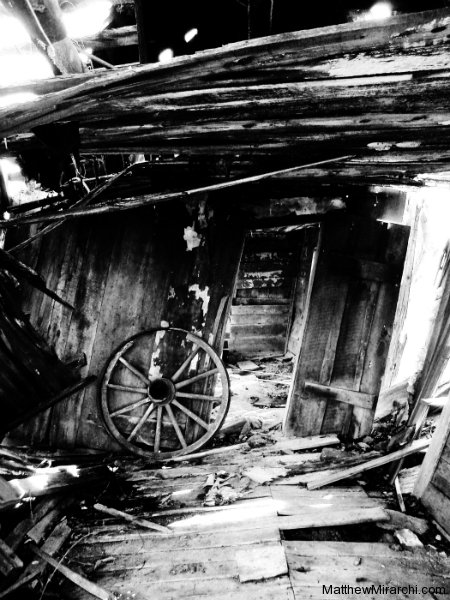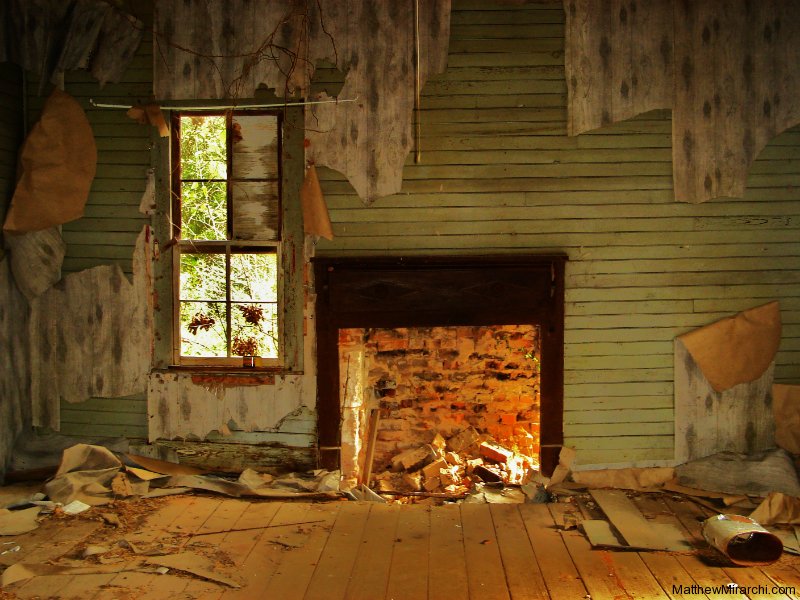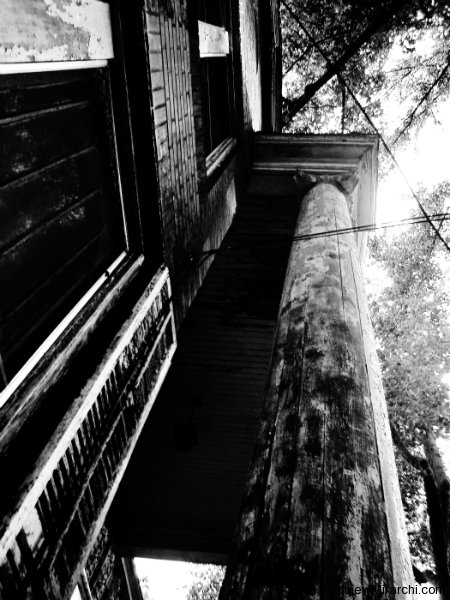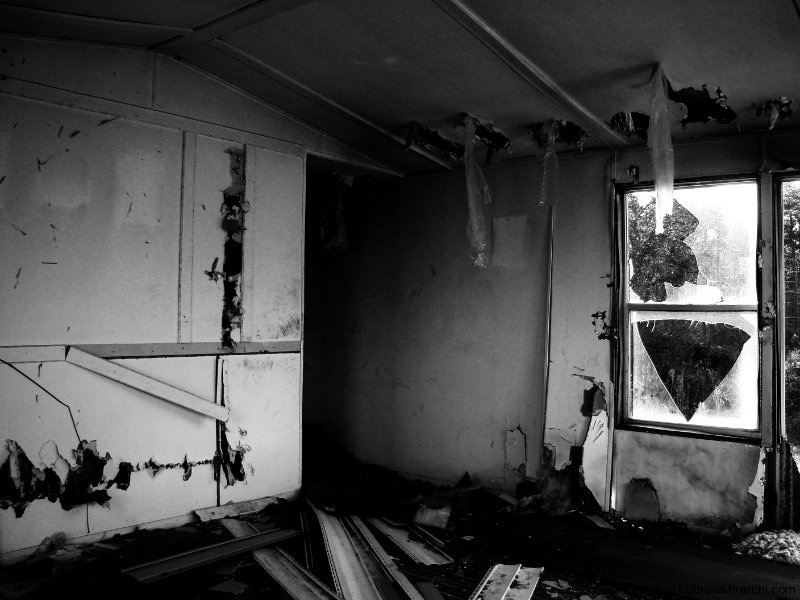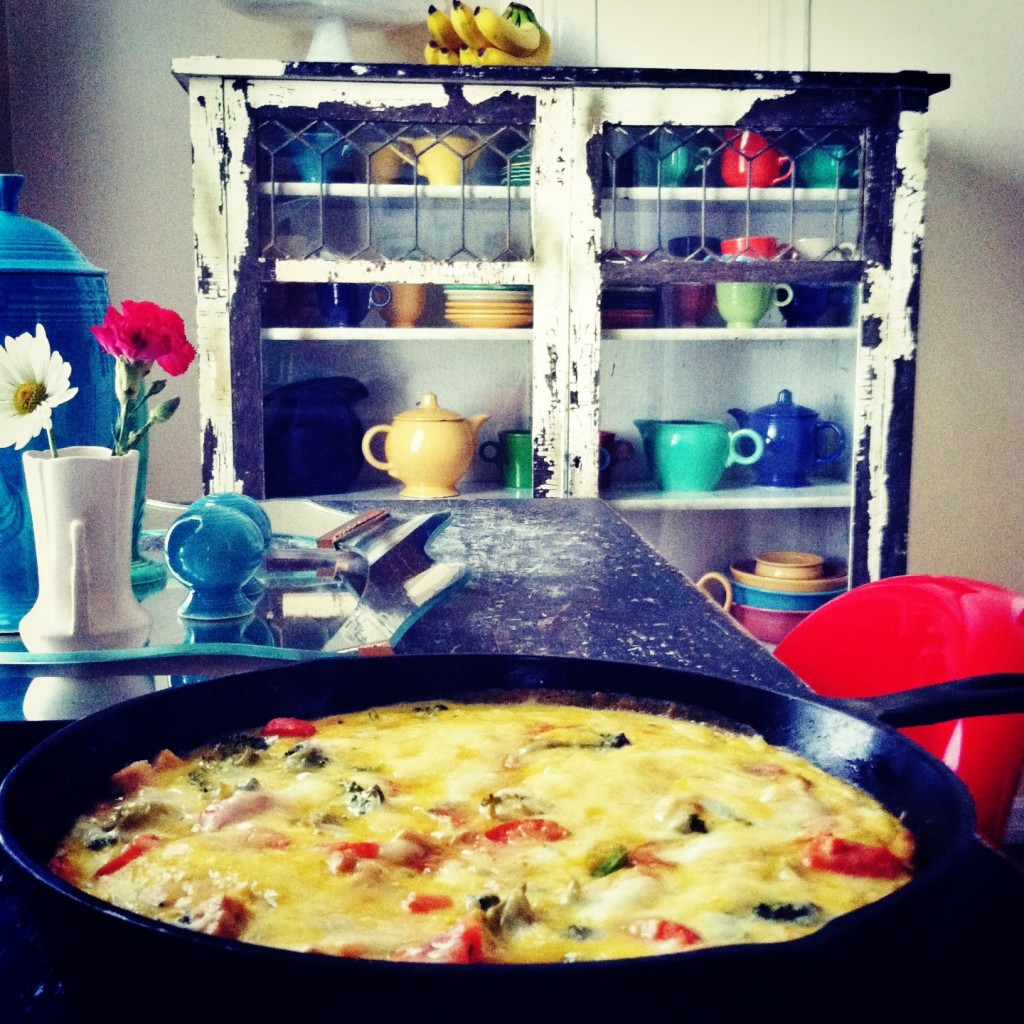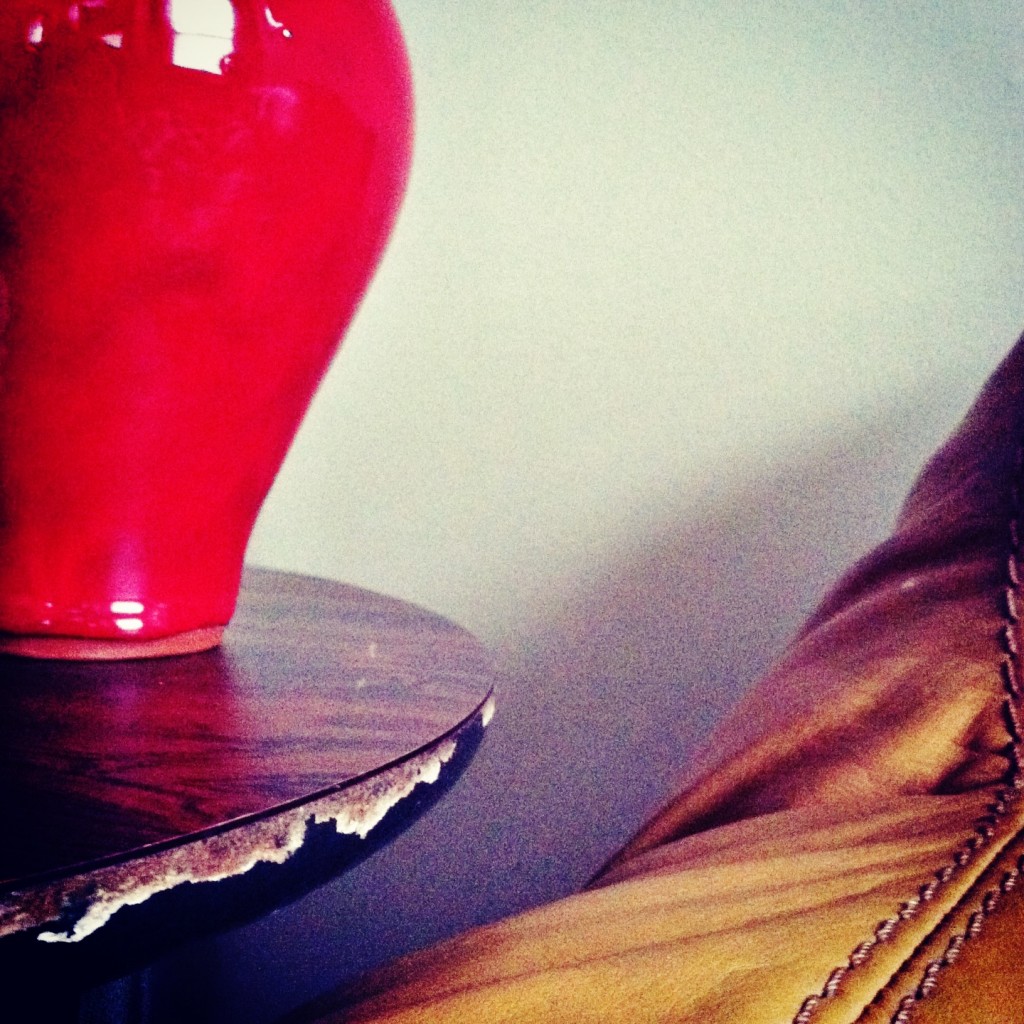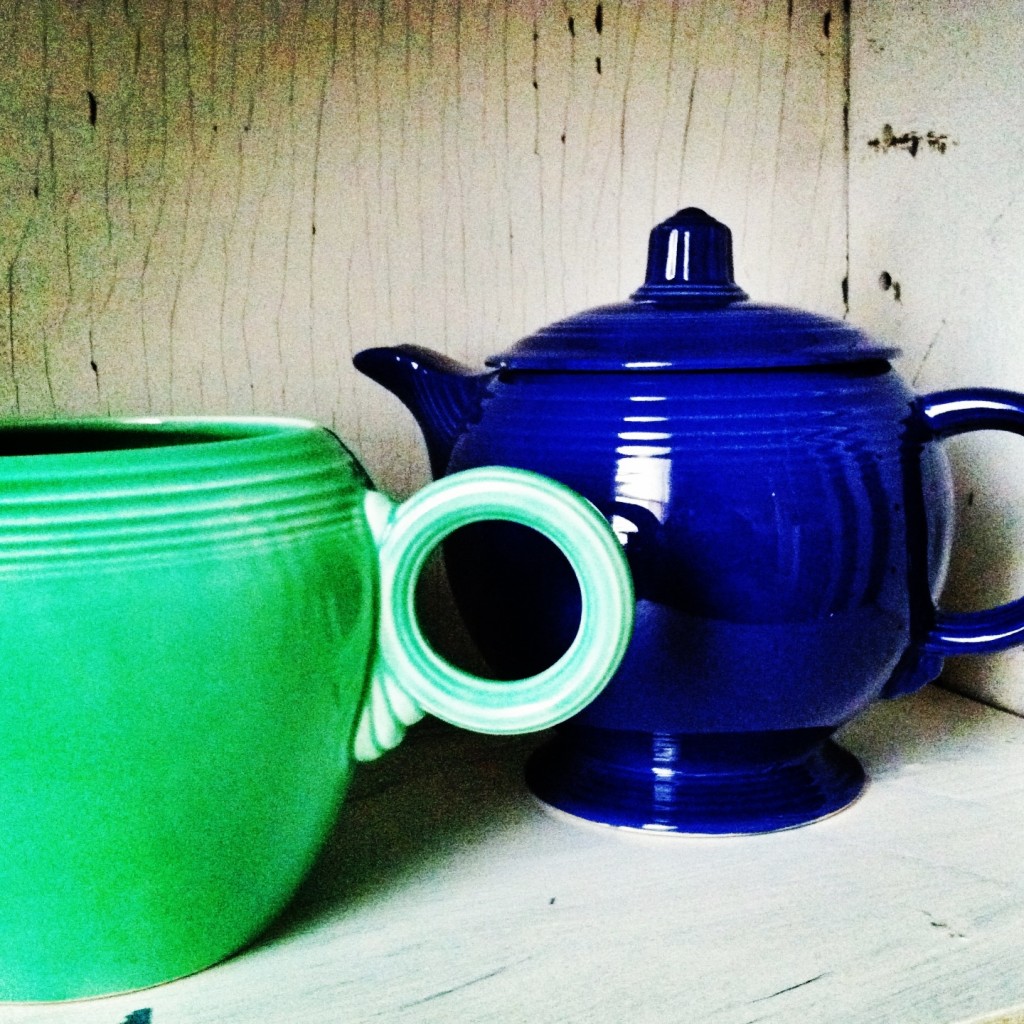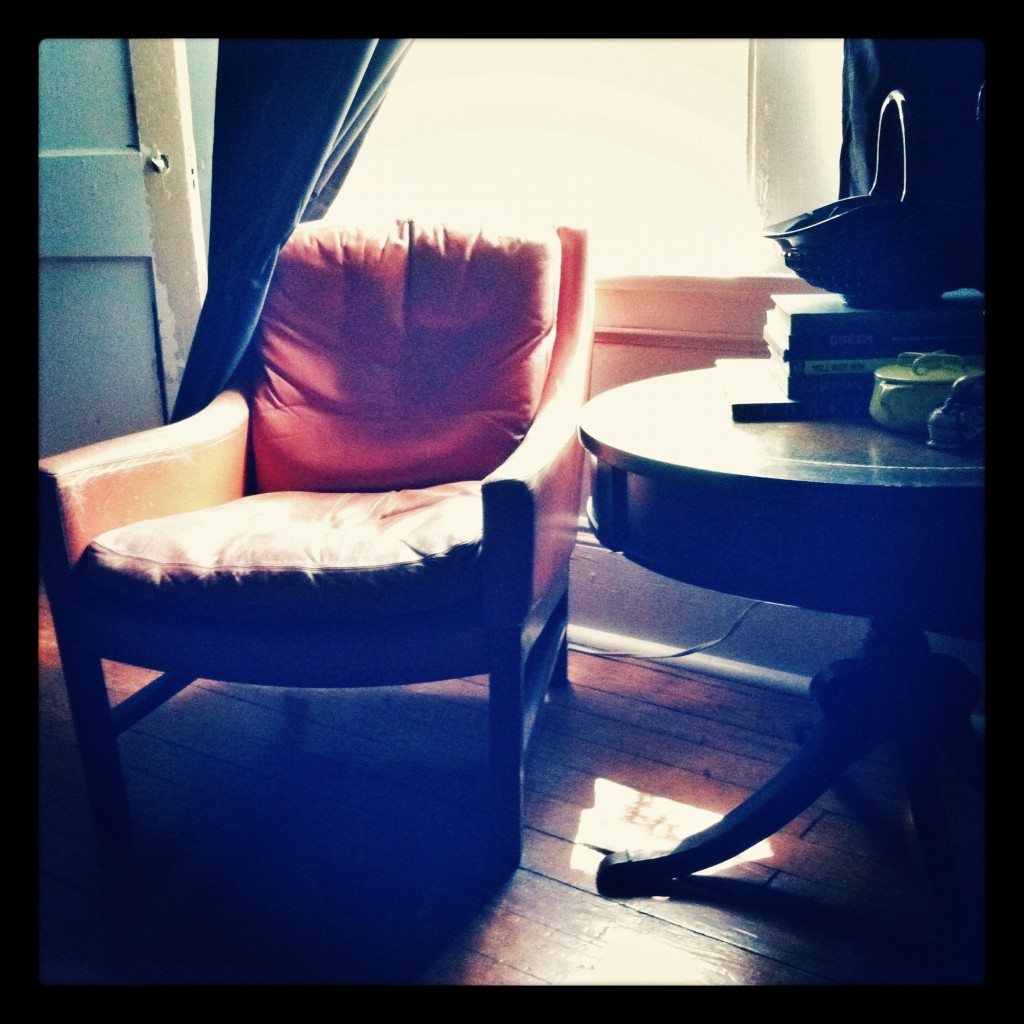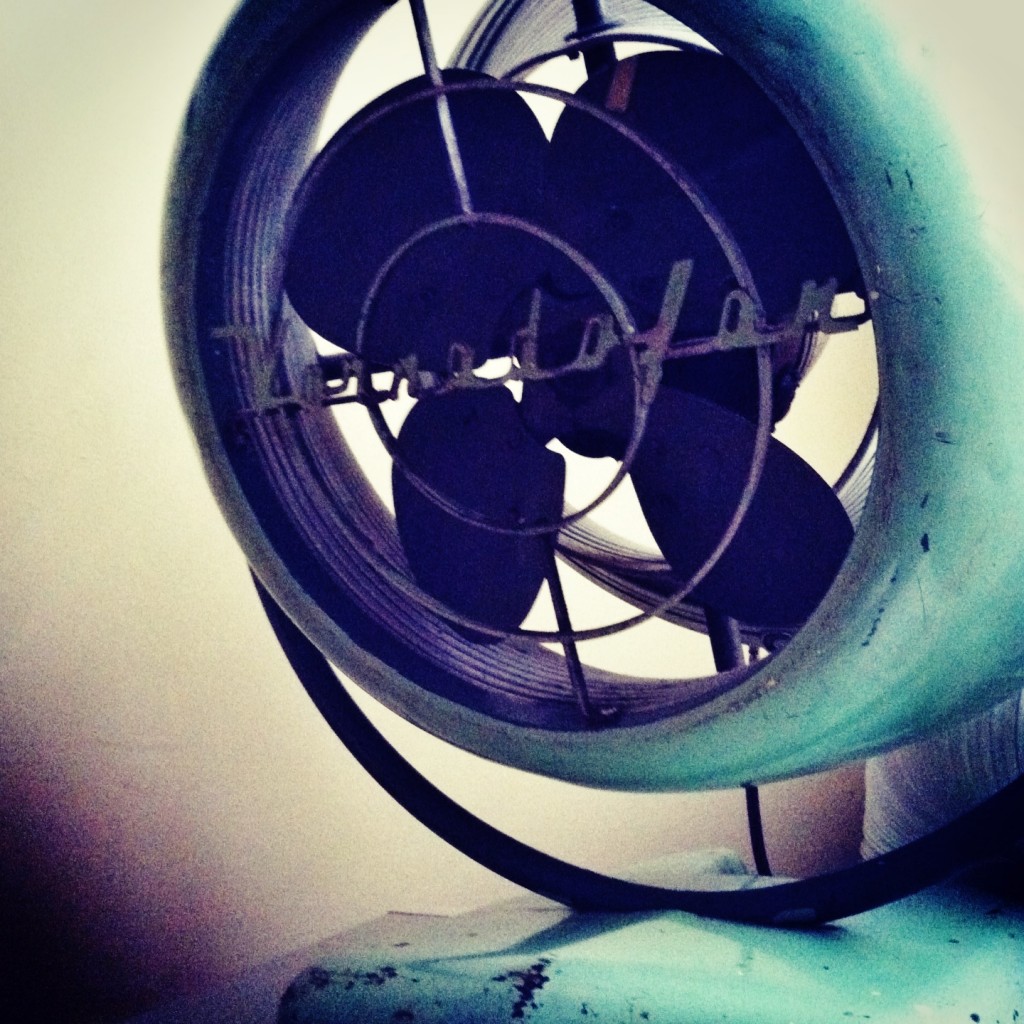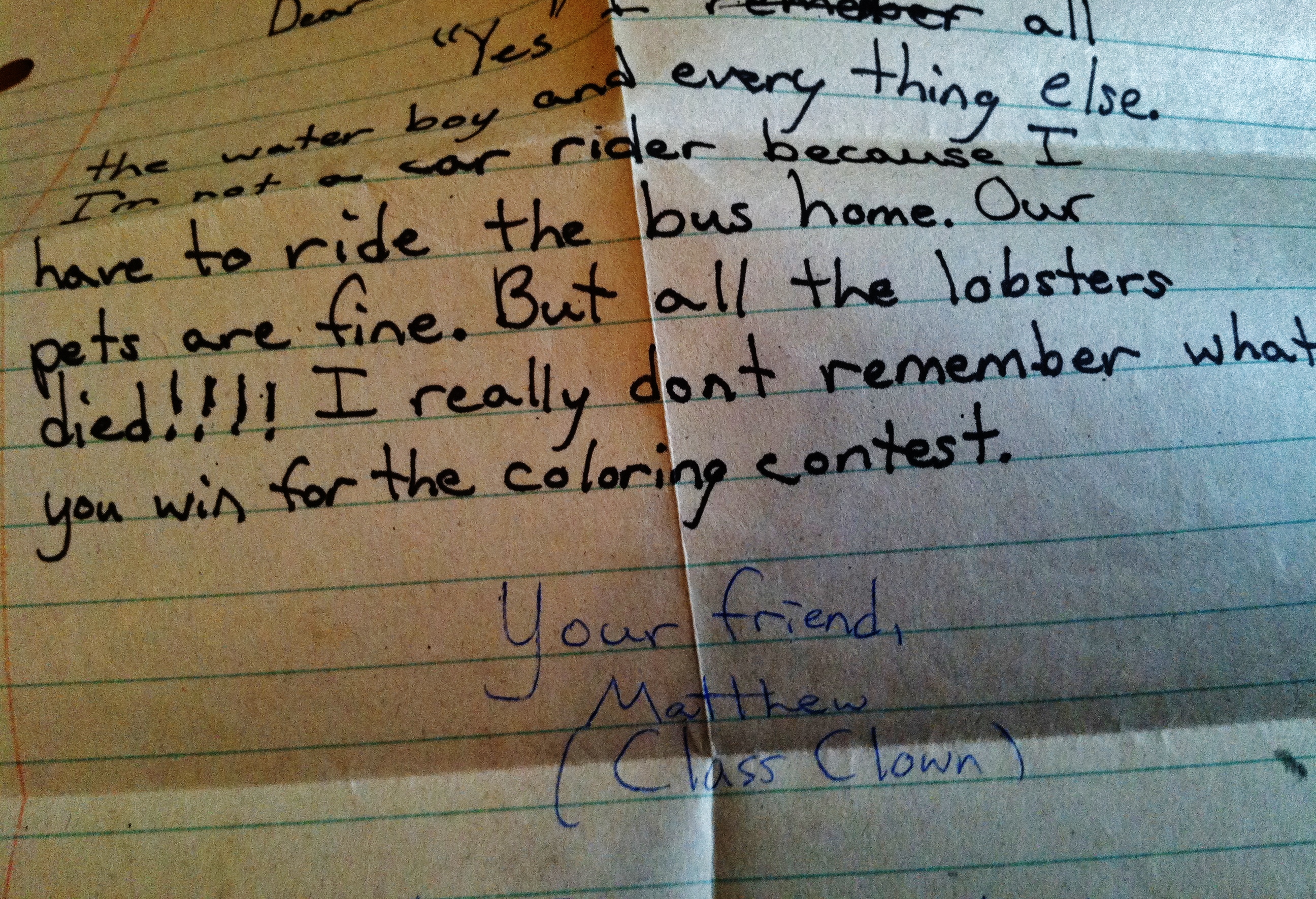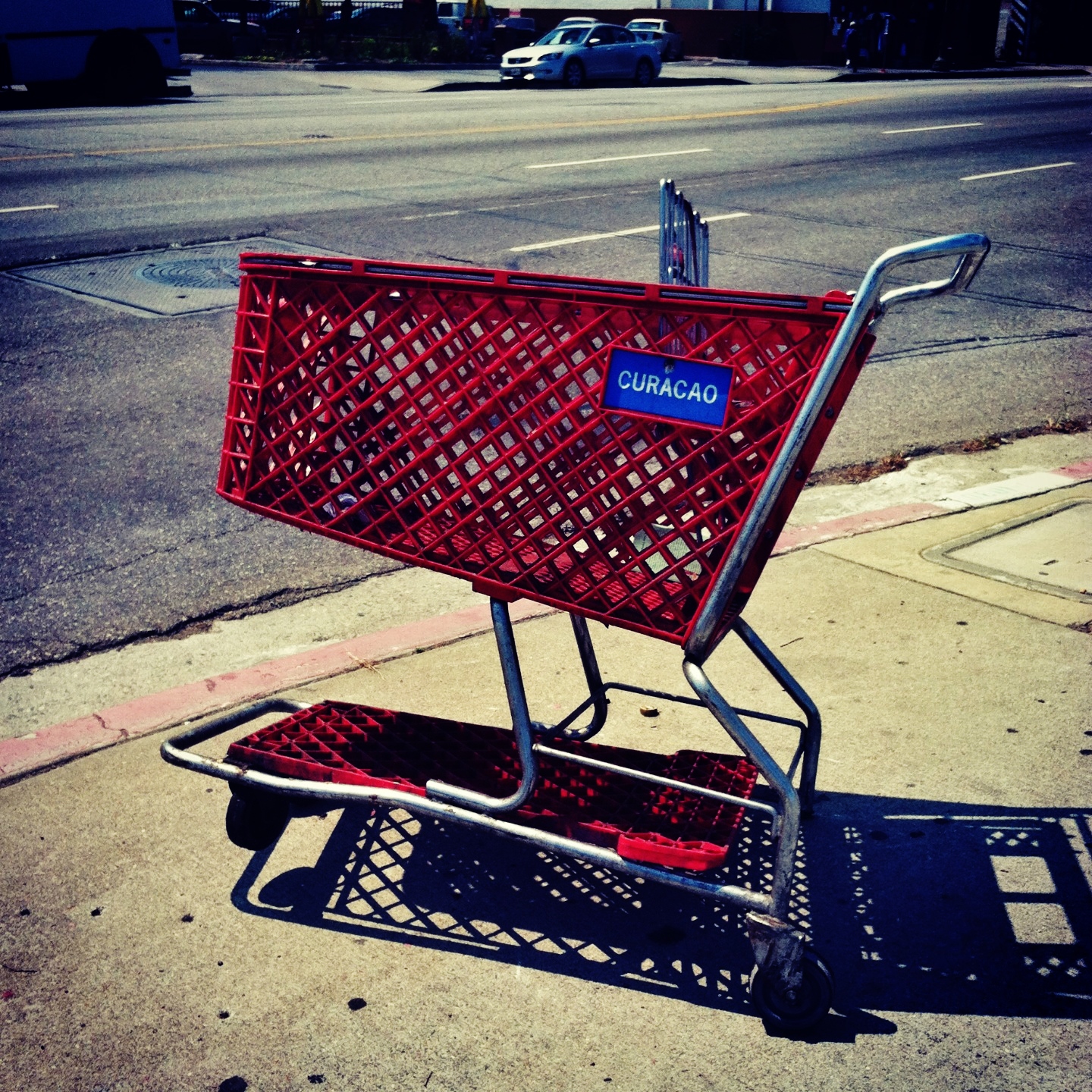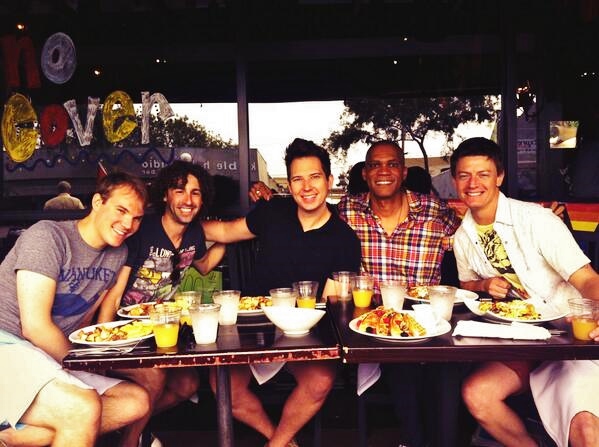It’s late December and my second year of graduate school is halfway over.
It’s a good feeling.
Even better, I’m not preoccupied with the upcoming semester and its associated stressors, because I’m too busy trying to find constellations in this popcorn ceiling.
“Lint-licker!”
Laying prone on the countertop, I crane my head to see the woman who’d walked in thirty minutes before yelling this rather odd, seemingly derisive moniker at the man with the shaved head.
Unfazed, the man continues to watch the massive television opposite the overstuffed sofa.
“Bastard,” the woman mutters before chatting up the chef preparing hamburger on the stove top, mere inches from my torso.
“So I said to him, ‘Mother-fucker you can’t have it both ways.’”
I close my eyes and imagine myself in a tropical paradise, away from this loud woman and her mindless drivel.
“You doin’ okay up there?” Kelli asks from her bar stool perch.
“Oh, yeah. I’m fine,” I respond, clenching my eyes closed.
Like a T-Rex orienting its reptilian senses to the slightest stimulus, our brief exchange draws the loud woman’s attention.
I can feel her eyes.
“Ooooh. I like how that’s lookin’,” she oozes. “You got anymore?”
“Just one.”
“Where’s it at?”
“The interior of my right hip.”
“What’s it of?”
Sensing my growing irritation, Kelli butts in.
“It’s two rings intertwined,” she chirps, lifting her right foot and displaying hers.
“Oh. For what?”
“Friendship.”
“Y’all must be close.”
“Best friends.”
The woman grows silent.
And I melt into the surrounding noise–the hamburger sizzling below my ear, the chef humming to herself.
***
Months before I end up on a bar in Hartford, Alabama, Kelli and I are planning our brief three-day visit over Christmas break. We’ve settled on the dates, but Kelli hasn’t yet wrangled her brother’s friend’s friend and tattoo artist, Derrick, into doing our tattoos.
“Don’t worry, we’ll get it figured out,” Kelli assures. “Derrick’s supposedly a nice guy and should be in town around then.”
Seeing as how Kelli is the Grace to my Will, her words placate my anxiety-prone mind and I assume everything will fall into place. I hang up the phone and tweak the graphite sketch, and decide on the right spot.
Seeing as how I’m an academic masochist–read, graduate student–I figure it’s apropos to site the tattoo just below my ribs, in one of the most painful spots possible.
***
The day after Christmas, I drive down to Kelli’s mom’s house with my overnight bag in tow. I haven’t seen Kelli for about a year—not since we’d left for our respective graduate schools.
Driving with the tattered directions I’d jotted down in one hand and maintaining control of the car become mutually exclusive once I pass a swamp and turn onto a pothole-dotted gravel road. My car shudders and bucks down the narrow stretch. But even at a snail’s pace, I pass the house.
Backtracking, I pull into the leaf-covered driveway, park in the backyard, and make my way to the door.
“Watch it!”
I freeze. And a mound of moldy shingles crashes onto the patio a few feet ahead. I look up to the two burly men shoveling off shingle clusters from the roof, and side-step to the door between their off-loading.
Soon enough, Kelli and I are hugging and shrieking like sorority sisters getting morning-after pills. And Kelli introduces me to Arvind, her boyfriend of a year. We exchange pleasantries, and Arvind excuses himself outside to smoke with Kelli’s brother, Jeff. While Kelli’s mom, Marie, shuffles around the house listening to her Walkman, Kelli and I catch up.
I bitch about graduate school and she glows about hers, how great her adviser has been, and how perfectly her school fits her personality. Burning with envy on every count, I change the subject to tattoos.
“So, Jeff said that Bobby said that Derrick will be able to do our tattoos Friday evening. But Derrick’s kinda hard to get in touch with, so we’ll have to call ahead to make sure.”
This is sounding too Telephone Game-like for my taste.
“But we will be able to get tattoos while I’m here, right?”
“Of course! Don’t worry!”
Again, Kelli’s overwhelming optimism allays my fears. So we get drunk, and I doze off by the fire we’ve been feeding with wood Arvind and Jeff have been chopping all day.
***
The next morning, my sinuses are blocked and it’s raining.
“Looks like a fine day for tattoos,” I snuffle, staggering into the living room.
Honing in on the closest fluffy chair, I plop down and sigh.
“Don’t worry. We’ll get’em today,” Kelli assures. “Now, let’s eat.”
Plates-full of biscuits, gravy, bacon, and eggs later, Kelli and I retreat to the living room and watch the King Kong remake.
“You know, my sister never knew how this movie ended.”
“Really? Isn’t this a classic?”
But it’s true. In the darkened theatre, right as the planes began circling the Empire State Building, Laura had leaned over.
“He’s going to make it, right?” her voice wavering, eyes big as saucers.
“Well…”
As I watch the great ape plummet to his death, another load of shingles thuds outside. The rain has let up, and the roofers are back. Kelli’s phone rings, and I nearly jumped out of my non-tattooed skin.
“Is it Derrick?”
“I dunno who this is.”
She answers and I mouth “Well?” She shakes her head; not Derrick.
Damn. Even though time is crawling by, it’s going somewhere.
“Do you think we should call Bobby?”
“Just a little while longer, and then I’ll call.”
Before I know it, and after a few drinks, we’ve watched another movie and drained a few drinks. It’s evening, and we’ve yet to get any response to Kelli’s multiple voicemails to Bobby.
We call it a night, drink our dinners, and drowse off to sleep.
***
Saturday morning finds me pacing the living room. Kelli is on the phone with Bobby. A few minutes later, we’re crafting the day’s plans around our tattoos.
I follow Kelli and Arvind into town and pass a number of ramshackle homesteads, longing for my camera the whole way. Soon, the landscape changes from quaint to commercial, and we pull up to a bowling alley. I pile into Kelli’s backseat, and we head to the movie theatre.
Where we realize the newspaper times got it wrong, and we’ve missed the showing.
“Just as well,” Arvind says from the front seat. “They all looked pretty dumb.”
We opt for an early lunch before deciding to kill time in a nearby mall. Arvind disappears while Kelli and I peruse hideous discounted Christmas décor and wait by her cell phone like crack fiends.
My stomach starts feeling a bit uneasy. But it’s not my black bean burger making a reprisal. During lunch, a thought kept resurfacing: What if the tattoo-artist or the friends he’s staying with are queer-hatin’ Bubbas?
I’d voiced my concern to Kelli, and Kelli had called Bobby and left him a message to call her back.
With an hour to go, the window of opportunity to gracefully bow out is closing fast. But just as we pass a jewelry display, Kelli’s phone rings. It’s Bobby. She talks a few minutes before dropping the question.
“So, Bobby, Matt’s gay. Is that gonna be a problem with these folks?”
I grip a nearby Rudolf doll and brace for the bad news.
“Oh, okay. Thanks.”
Kelli hangs up and turns to me.
“He said they’re all laid back. Don’t sweat it.”
“Good. I didn’t feel like being the hate crime of the year.”
I look at my watch.
“We better get going.”
***
Within fifteen minutes, we’re rolling through a neighborhood of small 1950’s cottages that’ve seen better days.
Faded rental signs cling halfheartedly to massive oaks, and chained-up dogs bark at Kelli’s teal Jetta, as if saying, “What in the fuck are y’all doin’ here?”
“There it is!” I yell, pointing to a small house next to a gravel lot.
We park and walk toward the front door.
“What a minute,” I stammer, taking a second glance at the house’s paint-peeled address numbers. “This isn’t the right house. It’s 271, not 221.”
Just as we about-face, the door creaks open horror movie style. But I’m not about to suggest we investigate, gang!
A tall, thick man with intensely dark sideburns ventures out and lights a cigarette.
“Y’all here for the tattoos?” he asks. “I’m Derrick.”
“Oh, er, yeah. But we thought it was 221,” Kelli calls.
Derrick cocks his head and looks up at the house numbers. Now closer, I can see that the second 2’s tail has fallen off. What a fortuitous mistake I made! Or is it?
We step under the front overhang and walk inside.
“I’ll be in there in justa sec,” Derrick calls after us, “Just have to finish my cig.”
***
Right after crossing the threshold, something slams into my crotch and doubles me over–a pit-bull whose head and testicles approximate a bull’s.
“Whoa, Baxter!” a man with a shaved head calls after the well-endowed dog. “Sorry ’bout that. He’s just friendly.”
After cheerful Baxter is pulled away and I discreetly readjust myself, the three of us stand awkwardly in the middle of the living room. Like we’re here to pick up our prom dates, and are anticipating the run-down from Dad.
Introducing himself as Mark, the man with the shaved head invites us to sit down. Mark’s wife, Debra, blows in behind us, tossing her work uniform as she does. Between exchanging pleasantries and discovering Debra works as a professional wedding cake maker, Debra asks if we like hamburger.
“Oh, we just ate dinner. Thanks, though!” we chime enthusiastically.
“Well, there’s going to be plenty, so y’all feel free to it.”
Derrick comes in a few minutes later, and it’s then that I realize his sideburns are actually black-and-gray Koi fish. Immediately entranced, I can’t peel my eyes from them. He disappears to the back of the house and reemerges with his portfolio for us to leaf through.
“So, y’all know what you want to get, right?”
“We sure do. I want this dove outline on the side of my left foot,” Kelli says, pointing to a line drawing she’d made the day before.
“And I’d like to get this on my torso, beneath my ribs,” I say, holding my sketch.
He looks them over and tells us to give him a few minutes to trace and tweak them. Kelli and I scrunch together on the couch and peruse his portfolio while Arvind takes a recliner.
Derrick’s work is good, and has found a place almost everywhere on the human body. And as we turn the page to a single set of tattooed testicles, Mark passes behind us.
“Ha! Those’re mine!” he crows.
Now we know what Mark’s testicles look like.
Before I can further contemplate why Mark chose to get a skull forever inked into his nutsack, Derrick grunts from his illuminated drawing table on the other side of the room.
“Done.”
Smiling like I do in the presence of chocolate, Mark hands us his sketches. He’s made a few augmentations and waits for our respective green-lights.
“You’re the artist, and it looks good to me,” I say. “I trust you.”
He smiles again, and my heart beats a little faster.
But Kelli isn’t quite as enthusiastic.
“Can the wings be rounded on the ends?”
Derrick says it’ll be no problem, that he’ll alter the sketch after I’m done. He turns back to me, then looks at the low kitchen table.
“Here, why don’t you hop onto the bar?”
“I don’t want to break it,” I say nervously, eyeing the bar.
“Honey, you look like you weigh next to nothin’,” Debra calls from the kitchen. “You sure you don’t wanna sandwich or something?”
So I ease onto the bar and lay down. Derrick preps his equipment, shows us how he cleans it, explains what he plans to do, and asks if I have any questions.
I shake my head and he positions me a little lower. His touch is electric, and I nearly melt into the bar top.
“So, what do you do?” he asks, dipping the needle tip into a black ink well.
“I’m a grad student.”
Buzzing fills the air. My skin begins to sting. And I start finding constellations in the ceiling.
***
“Lint-licker!”
Swirling a bottle of Bud Light like a Riedel glass, the loud woman is accosting Mark again. But this time, Mark’s had it.
“Cassandra, will you please shut the fuck up?! The game’s on!” Mark barks, keeping his gaze locked on the large television.
“Eh, fuck off, you lint-licker!”
I realize “lint-licker” is some euphemism she’d used while relating a story to Debra. But I really don’t care enough to think about it anymore than I have.
All I care about is seeing my tattoo and getting out of here. Because now that the initial excitement of getting my new tattoo has worn off, the reality of the situation is hitting me: I’m in some strangers’ house, half-naked on their kitchen counter, getting tattooed; an imposing, friendly dog is circling underfoot; and an AK-47 is casually propped against a bookshelf.
And a man with fish sideburns is leaving an indelible mark on my torso. I turn and open my eyes. Kelli looks up at me.
“It looks really good,” she says. Derrick switches from black to red.
“That’s bad-ass, man,” Cassandra howls from her seat in the living room.
I muster a Thanks, and roll my eyes closed.
Except for her bad highlights, Cassandra reminds me of a pathetic man who’d followed me and Kelli around a tattoo shop in Alberta City, Alabama– where we’d gotten our friendship tattoos. The guy had several mediocre tattoos dotting his arms and legs, and had repeatedly insisted that, if he could, he’d get a tattoo every day.
“I mean, if some dude came up to me and was like, ‘Hey, dude, can I scrawl some ink into you?’ I’d totally be in,” he’d quipped.
And while I’d said I shared his enthusiasm for body art, he’d sounded slightly insane. Our tattoo artist had shooed him away repeatedly, but he always reemerged spouting, “Just scrawl it in, man. Scrawl. It. In.”
“Sorry, he’s kind of a fixture around here,” our tattoo artist had groaned as the tattoo-obsessed man bothered another employee.
Soon, Derrick’s quick strokes subside, and my new tattoo is deemed complete. I get up, examine it, and can’t stop smiling.
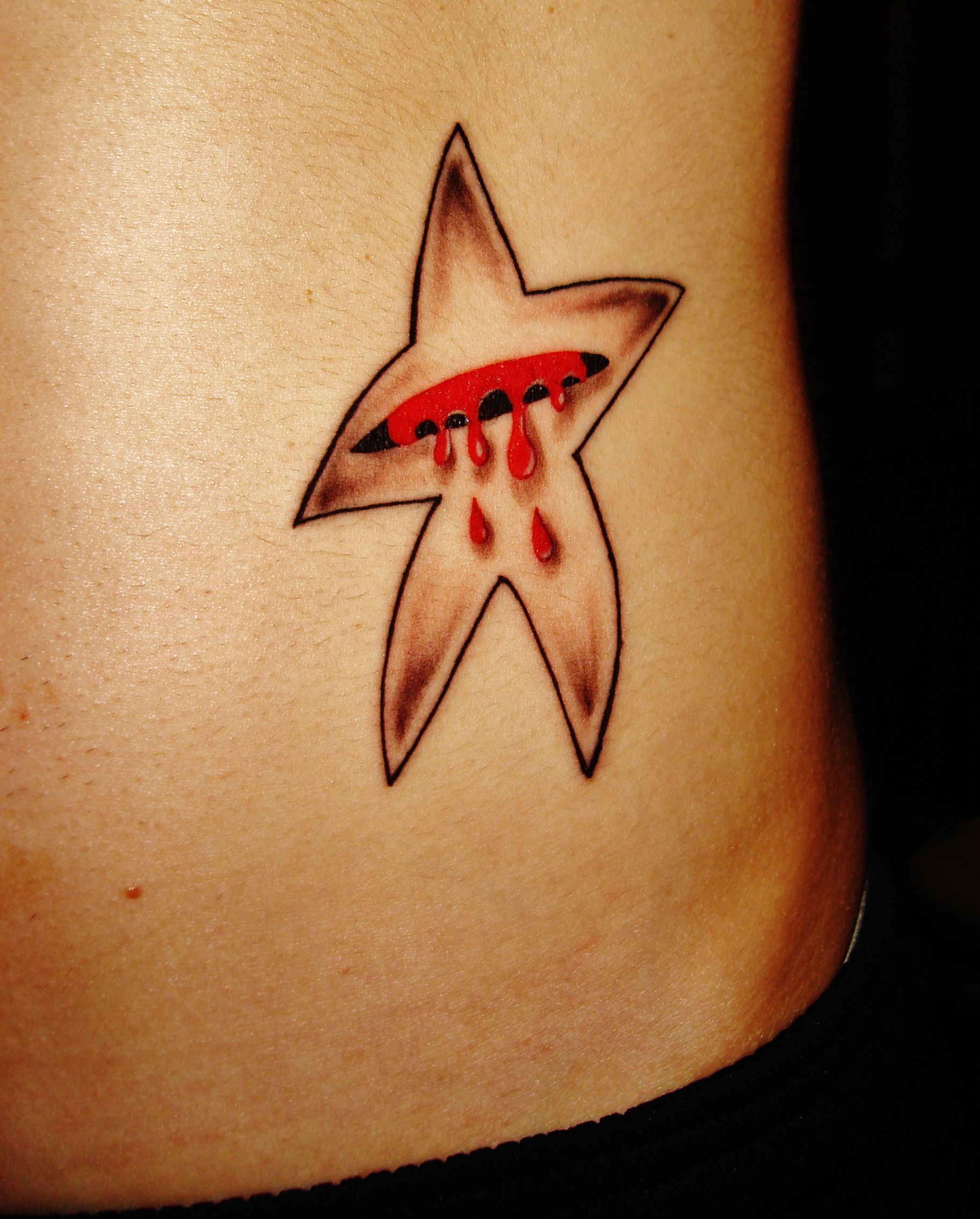
“I absolutely love it!”
Derrick has exceeded my expectations. A much higher-quality tattoo, especially given our environs, at a ridiculously low price, I tip Derrick exceedingly well, and trade places with Kelli.
After a few back-and-forth’s with Kelli about the roundness of the dove’s wings, Derrick dives in. Between holding Kelli’s hand and playing with Baxter, I stave-off questions from Cassandra.
But before I know it, Kelli hops down from her stool and pays Derrick.
We thank Derrick profusely, thank Mark and Debra for their hospitality, and bid a wasted Cassandra goodbye.
“Bye, lint-lickers!” she laughs, closing the door behind us.
“That woman was weird,” Arvind mutters, undoubtedly reeling from the whole odd ordeal.
Back at the bowling alley, we say our goodbyes.
“Another successful tattoo experience,” I laugh, hugging Kelli.
“Except this time our artist wasn’t high,” she adds.
***
As usual, that night I dreamed my tattoo came off in the shower. And I sighed with relief when I woke up and found it right where it was supposed to be.
I headed downstairs, and followed my parents’ voices to the kitchen. After a few minutes, I couldn’t hold it in.
“Morning! Y’all wanna see my new tattoo?!”
The color drains from Dad’s face. Mom rolls her eyes.
“Not really,” he sighs.
“Let’s see it,” she groans.
I lift up my shirt, and they both gasp.
“It’s a bit big, isn’t it?” Mom asks anxiously.
“I guess. Relative to the first one.”
“Well, what’s it mean?” Dad inquires.
Huh.
Derrick had asked me the same thing, and I’d rattled off something I’d rehearsed.
“Well, I told myself that I’d get a commemoration tattoo for surviving my first year of graduate school.”
Like Derrick, my parents wanted more of an explanation.
“The subject-matter’s derived from a painting I’d done the summer after my first year. It’s almost like, no matter how crappy or hard life gets, no matter how much it tears you open and makes you bleed, you can still shine.”
Dad rolls his eyes. Mom’s well with tears.
Bingo.
But even though I’d laughed a little after I’d explained my soon-to-be tattoo’s significance to Derrick, I’d meant what I said.
Sure, it’s a bit trite and slightly saccharine. But it’s true.
So, after I pull my shirt back down and leave my parents to their now-spoiled breakfast, I hum Cyndi Lauper’s “Shine.”
And resolve to do just that in the coming years.
Even if I get a bit bloodied in the process.


